Life, Postmodern Science & The Hegelian Jihad
How Hegel's Possible Fatal Misinterpretation of Plato's Republic has led to a Dystopian Nightmare.
As we’ve seen from my piece comparing Watergate and Obamagate and how the Deep State used nearly identical playbooks in both instances, when we take a step back in both time and space and gain a broader perspective, it can help us makes sense of the world around us.
Our world is presently filled with an almost incomprehensible amount of insanity that mankind is currently muddling our way through.
You most likely have your own examples of how strange things currently are, but just to throw a few out we have men winning women’s sports competitions, children being race-shamed and taught to masturbate in our public education institutions, cancel culture is being used to police our collective social status, science is currently more closely resembling pseudoscience, “Fact Checkers” and the Ministry of Truth coming to fruition, 99% of the population addicted to their mobile phones and society is so polarized right now that simple disagreements can’t even be discussed, much less reconciled. Down is up and black is white and nothing makes sense. It would appear that this pervasive, ubiquitous sense of conflict we’ve been experiencing is all by design.
I have a theory that I like to call the Hegelian Jihad that can possibly help us come to terms with what’s happening and even offer us a way out, but be forewarned, this theory is somewhat esoteric and very deep and it’s going to take me a bit of effort to set the table so grab a cup of coffee and indulge yourself.
In order for us to examine this theory, we need to expand our perspective to include as many as the past 2500 years and to incorporate philosophies from around the globe.
To understand the Hegelian Jihad, we need to understand Dialectic Materialism (Marxism) and Postmodern Science* (I’ll be covering Postmodern Science later in the piece).
To understand Marxism, we need to understand the Hegelian Dialectic and to get an understanding of who Hegel was, we need place him in the context of German Idealism with noted philosophers such as Kant and Berkeley.
To understand German Idealism, we should really look at Plato’s Allegory of The Cave and finally, to understand Plato, we need to take a look at Socrates who lived about 2500 years ago, so that’s where we’ll start.
Socrates
Socrates is considered to be the Father of Western Philosophy, a proponent of critical thinking and of course, the progenitor of the Socratic Method. The Socratic Method is very useful in terms of helping encourage people to think differently.
The Socratic Method is a technique used to help challenge people’s underlying beliefs and assumed knowledge by asking a series of questions to generate a form of mental friction between what a person accepts to be true, and logic, facts, evidence that contradict that person’s ideology.
This mental friction, or inner conflict, causes the underlying assumed knowledge of the student or aspirant to be dissolved and therefore for the person to eventually become liberated from their own personal mental slavery.
Ultimately, Socrates was executed (via hemlock) for the crime of “Corrupting the Minds of the Youth” but I would suggest that what Socrates was actually doing was de-ideologicalizing his students from what ever societal groupthink that they had been indoctrinated into. Ideologues abhor heretics.
I suspect that Socrates was far more than just a philosopher. When we look at Socrates is a much broader context and do a meta-analysis across all wisdom traditions, all spiritual and religious groups and other philosophers, I don’t think that I’m exactly going out on a limb to hypothesize that Socrates was an Enlightened Master.
What the hell is an Enlightened Master?
Well, nobody knows, short of another Enlightened Being, and they won’t tell us anyway.
“Those who know, won’t say, and those who say, don’t know”
However, we can attempt to extrapolate what the word Enlightenment means by bringing in our analysis of all spiritual traditions, supporting that analysis with the research on human consciousness and corroborating the underlying theory with an assist from Quantum Mechanics and Modern Physics.
Please bear with me, I did warn you that this is deep, but this is vitally important in understanding the Hegelian Jihad and to come to grips with the madness permeating our culture. And please, feel free to interrupt me if you think I’ve say anything remotely ideological and point it out to me. I do my best to be non-ideological and as we go forward, I will make the case for how Enlightenment is a testable hypothesis.
So first off, in an attempt to examine all of our spiritual traditions for what Enlightenment might be, let’s take a look at some interesting patterns.
In ancient Hebrew, there is a word אוֹר, which is pronounced ‘ohr’ which literally means “to become light”
Buddha discussed the liberation from the disease of samsara (the perpetual birth, life, death, rebirth cycle) and he called that liberation Moksha (Sanskrit: मोक्ष)
Socrates’ most basic of instructions to his students was Gnothi Seauton (Greek: γνῶθι σεαυτόν) or Know Thy Self, or said another way, to become Self Realized or Self Actualized.
5000 years ago, the sage Patañjali developed his Yoga Sutras, which is a spiritual developmental process rooted in a very scientific discipline. We are all familiar with Yoga as a trendy series of postures (or asanas) that help keep out bodies limber, but asanas are only a small percentage of Patañjali’s overall Yogic system. The word Yoga comes from the word ‘yoke’ and translates to mean “the Reunification with God”.
Jesus spoke about Atonement. Atonement also means the exact same thing as yoga, or the “Reunification with God”. Christianity also has embedded within in it the concepts of Salvation and Redemption, which do fit the overall pattern we’re seeing if we can establish here.
In Islam, there is the notion of “Attaining the Station of Abraham”. That’s interesting on the surface and may not mean much, but in the context of all of these other traditions, it could be a viable candidate for another reference to Enlightenment.
Krishna, who lived about 5400 years ago spoke of Enlightenment or ‘Nirvana’ which comes from the Sanskrit word meaning “disappearance, extinction" of the individual to the universal (i.e. the death of the ego).
Over the centuries there are a great many others who may or may have not become enlightened, but whose writings and discourses are all internally self-consistent with an overall concept or paradigm of something we might call Enlightenment.
This include people like Father Thomas Keating, Swami Vivekananda, Parahamsa Yogananda, Sri Brahmananda Saraswati, St. Thomas Aquinas, Krishnamurti, St. Francis of Assisi, Sri Ram Krishna and countless others. Were any of them Enlightened? None of them? Who knows? Who cares?
To come up with a reasonable hypothesis of what Enlightenment is, given the very nature of this subject matter, the best we can hope for is some sort of extrapolation by doing a cross-analysis on all possible manuscripts, philosophies, theoretical physics, controlled experimentation and personal experience . In other words, it would appear that Enlightenment is a word that is impossible to truly define or understand; we can only have a vague idea of what is is and based on the evidence, make a fairly solid prediction that there seems to be some kind of universally attainable, mystical state of consciousness.
Here is a Socratic Question for you: Firstly, would you agree with the premise that any of these alleged Enlightened Beings, who’ve proactively worked to assist others also become enlightened, could be considered ‘liberators’?
If so, then the question would be this, do you think a liberator would promote an ideological framework?
We can think of ideologies as penitentiaries of the mind. Liberators come to set inmates free, not incarcerate them further than they were prior to the liberator’s arrival in the first place.
The Allegory of The Cave
Moving along on our journey of attempting to come to some sort of understanding of what Enlightenment might be, let’s take a short look at Plato. Plato was a student of Socrates and had watched his friend and teacher be put to death. Take that into account when you watch this short, six minute video interpretation of the Cave:
**Interesting to note in this short video, if you’re comfortable with Jesus being placed alongside the pantheon of other possible enlightened masters such as Buddha, Krishna, Socrates and many, many others, is that Plato accurately forecasts the crucifixion of Christ some 400 years prior to it happening! Basically Plato’s Cave postulates that anyone who exits the cave and then returns to free the other inmates is attacked by those inmates and killed.
In the context of Plato’s Cave, is this not a perfectly reasonable explanation for the Crucifixion?
Furthermore, in this broader context that the Allegory of the Cave represents mankind’s quest for liberation, an obvious interpretation of the shadows on the walls of the cave is that they represent everything our five senses perceive in this space-time bound continuum.
By extension, Plato could be trying to tell us that Enlightenment could possibly be considered a state of consciousness capable of experiencing a higher reality, an Absolute Truth—beyond our senses and beyond space and time.
Plato also appears to be re-iterating the same premise that all the other masters have asserted in one way or another, which is that the ability to exit the cave is an aspect of the human condition; that we can all become enlightened beings. In other words, Enlightenment is a Testable Hypothesis.
The Allegory of the Cave is in Chapter 7 of Plato’s Republic and Plato’s Republic has a huge role to play in the Hegelian Jihad so place a mental placeholder here. We’ll come back to it.
I would like to point out from my own personal observation is that most philosophers, especially materialists or atheists, who have attempted to interpret Socrates and/or Plato have all arrived at significantly different interpretations from how spiritualists would (given the above meta-analysis).
Whether or not my overall hypothesis that I’m presenting here is correct or not, when you parse Plato’s work in the context of the work of all the other presumed Enlightened Masters, you not only get a completely different interpretation from what a materialist would, but you also get an interpretation that is internally self-consistent with all of them. If there are outliers in any of the separate resources, either the outlier is incorrect and all of the other materials are wrong, or all the other sources are correct and it’s the outlier that should be reconsidered.
It’s up to the truth seeker to apply critical thought to sort out those inconsistencies and contradictions.
Also of note is the [Platonic] Dialectic, which Plato referred to as the supreme science.
The Platonic Dialectic a methodology based on inquiry that is proceeded by a constant, iterative, layered questioning technique, challenging assumed knowledge and beliefs and by explaining a particular concept in terms of a more general one until the ultimate ground of explanation is reached: “The only thing I know is that I don’t know anything”.
Like the Socratic method that the Platonic Dialectic had to be based on, the Platonic Dialectic causes mental conflict, a psychologicaltug-o-war, between assumed knowledge and contradictory logic and/or evidence and that by dissolving this dissonance we achieve liberation from the underlying belief. The process continues to peel off layers of belief until all the ideologies of the participant are irradicated.
In other words, within Plato’s framework, this internal conflict is a positive influence that triggers a psychological healing response.
Mental conflict is a good thing if you’re able to see it through to its conclusion. The heat from the mental friction acts as a solvent that melts away the unreal.
I might add here a question to the reader as well, how much mental conflict are you experiencing thus far in reading through this?
I’ve used logic, reason and to the best of my ability I’ve left out any assumed knowledge or beliefs. This process of moving through inner conflict to help accelerate personal evolution is vital to understanding the Hegelian Jihad.
The Enlightenment Based Paradigm of Existence
At this point in presenting my hypothesis, I’d like to postulate a model or paradigm, based on the interpretation of Plato’s Cave, a cross examination of many of the above traditions and some undefinable thing that we refer to and imagine as Enlightenment.
We can develop a hypothetical model for existence that seems to be consistent amongst all of these varied and disparate traditions that states that behind all this apparent reality is a singular Being, a singular Consciousness, the one and only Self and that Enlightenment is a state of consciousness where one becomes united with the One, the Self.
I propose that we call this model Socratic Idealism for lack of a better phrase.
Idealism itself is a word that has been arrogated by different factions with different agendas, but let’s say that Socratic Idealism is a model of reality that is based on the idea of The Self, an absolute being that we are all part of and that there is nothing that is not part of The Self.
Gnothi Seauton, Know Thy Self, is the act of gaining knowledge, through experience, of this non-physical reality. In other words, Self Realization can be through of experiencing consciousness, with consciousness, throught consciousness as consciousness. Self Realization is the dance, the dancer and dancing all merging into One.
A corollary of this hypothesis is that our entire universe is an epiphenomena, a byproduct, of some singular consciousness and by extension, each of our own, individual consciousnesses is a splinter or fragment of the whole; individualized but not separate from the Self. That splinter, as represented in Plato’s Cave, is the exit to the Cave. In other words, the exit to Plato’s cave is our consciousness.
This model of Socratic Idealism is consistent with Christianity, Hinduism, Judaism, Buddhism and other religions but it may take a little tweaking here and there to iron out the anomalies and discrepancies between them. It is possible to distill out a common substratum beneath all these different traditions and resynthesize these commonalities into a paradigm that is internally self consistent with all of them.
It seems like the English language does no have a single word to apply to the group of traditions, philosophies, methodologies and religions that can categorically be described as Enlightenment-centric.
For the point of discussing this paradigm, it would help to have a name we can reference it with so that we can easily discuss it. I doubt that you’d find anyone to claim that the Socratic Method (or Socraticism) is a religion and if you understood that Buddhism is a non-dogmatic, practical philosophy, you’d understand Buddhism is not a religion either.
The phrase Socratic Idealism can be used to describe a paradigm that can house all religions, spiritual traditions and philosophies.
Human Consciousness Research
Research into human consciousness provides scientific evidence that shows that human consciousness operates non-locally and non-temporally. These findings are consistent with and corroborates the hypothesis of a singular, universal consciousness, proposed above in the definition of Socratic Idealism.
Over the past fifty years, a significant amount of time and energy has been spent by scientists who’ve designed and conducted extensive controlled experiments into so-called Mind over Matter types of experiments. These studies demonstrably and consistently have proven that human consciousness operates beyond space and time.
The hundreds of studies with thousands of case subjects are conclusive and overwhelming. When you accept that data that human consciousness operates beyond space and time, it does throw a bit of a monkey-wrench in the current paradigm of Scientific Materialism, which is based on the premise that the brain produces consciousness.
How could it be possible for the human brain to produce a phenomena that operates beyond space and time? Scientists don’t even have a single legitimate theory for how the brain produces consciousness in the first place, not to mention a reasonable theory to account for all the weirdness our minds have been shown to exhibit.
As a side note, it’s clear from this definition [below] of the word miracle why most so-called legitimate scientific journals won’t touch this research.
To do so would insinuate the existence of God. I would also argue that there is no such thing as the paranormal or the supernatural, but that science needs to broaden their scope of what normal or natural are to account for phenomena that their materialistic paradigm is unable to accommodate.
In other words, we need a scientific revolution that jettisons the misguided assumption that states that matter is fundamental to existence. Materialism has repeatedly been falsified and has been proven to be the incorrect basis for science.
The work of Bill Bengtson, for instance, fits the above description of miracle perfectly.
He has shown through a series of controlled scientific experiments how he can teach anyone, with their minds alone, to heal lab mice injected with mammary cancer. He has shown that ‘miraculous’ spontaneously healing capability is an innate human faculty and that all humans can perform these ‘miracles’ if trained properly. In fact, for his controlled experiments, he hand selects skeptical, non-believers in spirituality or faith healing. Dave Hayes (aka Praying Medic) also teaches these types of techniques.
Additionally, when we look at all the published research and realize that the brain does not produce consciousness….we can instantly destroy the myth of transhumanism!! How can you download a person’s mind into a supercomputer when that mind does not reside in the brain in the first place?
Quantum Mechanics/Modern Physics
I would be remiss if I didn’t include an honorable mention of Quantum Mechanics (QM) to the mix. I’m not so foolish as to say that QM proves anything, or that I know much about QM but we can say this much: QM does not contradict the above hypothesis of Socratic Idealism and that is certainly not an insignificant fact.
QM is consider by many in the scientific community to be the most successful scientific theory ever with the incredibly reliable and accurate prediction it makes, and by some accounts, QM represents upwards of 30% of the World’s GDP so the fact that it tends to corroborate) the above hypothesis of Socratic Idealism only adds weight to the above arguments.
Hypothetically, if we are talking about a phenomena that exists beyond space and time, it seems completely logical that we would not be able to prove scientifically the existence of that phenomena (given our current framework in science, which is limited to a space/time domain).
The best we can hope for scientifically is the kind of meta-analysis that I’m outlining here and/or direct personal experience. It would appear then that Enlightenment may very well be experiencing a reality beyond space and time and that exiting Plato’s Cave is in fact, exiting the space-time continuum.
SUMMARY
So to summarize up to this point (H/T to Patel for this style of essay break):
All spiritual traditions, including Greek Philosophy have embedded within them some notion of ‘Enlightenment’.
We can generate a testable hypothesize that this is the correct model for existence, including the corollary of a singular consciousness that this universe springs forward from and that human consciousness is a splinter of the whole.
Within this context, Plato’s Allegory of the Cave is a description for this model of existence and we can refer to this model, for sake of discussion Socratic Idealism.
Controlled Experimental Research into human consciousness reveals that our minds operate beyond space and time, further bolstering this hypothesis.
Quantum Mechanics and Modern Physics corroborates Socratic Idealism.
Hold on, I’m coming…we’re almost to the Hegelian Jihad. Just a few more pieces to the puzzle first.
Plato’s Republic
Plato’s seminal work was a book he titled “The Republic”.
Written around 375 B.C.E., this classic is authored with Socrates as the main character and is ostensibly about Justice, the pursuit of happiness and the governance of people within the ‘City-State’, and as previously mentioned, The Allegory of The Cave is included in Chapter 7.
However, we need to apply some critical thinking here about the nature of The Republic and what it possibly represents. Given the above hypothesis that Socrates had attained Enlightenment and was subsequently executed for his teachings, perhaps The Republic was more than just book about Justice and Government. Plato wasn’t just Socrates’ student. Plato was Socrates friend, scribe, student and secretary. They were very close and Plato’s avocation was to to his best to share Socrates’ teachings with the world posthumously.
Is it possible that not only was The Cave an allegory, but that the Republic was entirely allegorical?
Would Plato, who studied at the feet of an Enlightened Master, have spent all of his efforts penning a tome about the city-state of ancient Athens? Or is it possible that the city-state referred to in the Republic was a metaphor for the human psyche and a possible roadmap for attaining Self Realization or Enlightenment?
My theory on Hegelian Jihad rests on the latter being the correct interpretation of The Republic. The Platonic Dialectic was basically a methodology to help people exit The Cave through the continual process of generating internal mental conflict with the intention of reducing and eventually eliminating all beliefs. As we’ll see below, the Hegelian Dialectic, which was a derivative of Plato’s, is virtually the exact opposite.
German Idealism
Before we can get to German Idealism, it would be helpful to explain a generic context of what is considered to be Idealism in general and how it relates to the rest of this article.
In an attempt to understand our place in existence and asking the question “What is real?”, we find that the intersection of our consciousness with our apparent reality is where things get extremely interesting.
For millennia, it is thought that there are three competing and separate models or paradigms that can be used to describe the relationship between our consciousness and our experience of the universe. These are known as Materialism, Panpsychism and Idealism;
Materialism is the hypothesis that says that matter is primary to existence and that our brains produce consciousness (i.e. that consciousness is an epiphenomena or byproduct of brain function). This hypothesis says that human consciousness is produced by electrical impulses and chemical reactions within our nervous systems and therefore we experience our environment via our fives senses providing sensory input to our brain’s operating system (or consciousness).
Panpsychism is the hypothesis for existence that states that consciousness is an intrinsic property of the universe (like gravity, electricity, magnetism, etc.) and that this universal field of consciousness interoperates with our nervous systems to provide each one of us with the unique experiences we have.
Idealism is the hypothesis that behind this entire universe is a single consciousness and the universe itself is a byproduct or epiphenomena of this consciousness that exists beyond space and time. We therefore experience our environment through a non-local consciousness that more or less uses the human brain as a transceiver.
For the sake of discussion, each of these three hypotheses should be given its equal due. (If there is a fourth (or fifth, etc.) hypothesis that describes the relationship between human consciousness and our experiential world, I would love to stand corrected, but as far as I know, these are considered to be the three basic categories or paradigms).
The Materialist hypothesis is based on the premise that matter is primary to existence and that all of what we see, feel and experience stems from our primordial materialistic roots. Not only does this model dictate that human consciousness is produced by the brain, but it simultaneously mandates that life was originally spawned as an emergent property of a barren, inert and mechanistic universe.
Through a process that scientists refer to as abiogenesis, a perfect storm occurred 3.5 billion years ago where lipids, amino acids, self-replicating molecules (such as RNA or DNA) all converged together in the same place and time, along with other unknown factors such as heat, gravity, light, electricity, magnetism, etc. and poof, life happened!
There’s as much evidence for abiogenesis as there is in the Easter Bunny.
Our current paradigm in science is based on this hypothesis. (*I would add that in the 1840s, materialism was not necessarily an unreasonable hypothesis, but given everything we’ve learned since then, it currently doesn’t have a lipid to stand on).
Panpsychism is a hypothesis that considers consciousness to be an intrinsic component of the universe, like gravity and magnetism, and that we experience our realities through this medium, in collaboration with our nervous systems.
Panpsychism is become more and more popular within the scientific community and renowned neuroscientist Christof Koch and physicist Max Tegmark are two of the most prominent contemporary academics who are taking the hypothesis of panpsychism more seriously. They view some sort of form of Panpsychism as a conceivable basis for understanding how our consciousness provides us windows into our individual experiences.
Panpsychism also fits within the “Universe is a Simulation” idea, but the simulation model, in my experience, is a philosophy hack used by materialists who look at QM and the conclusions of human consciousness research that falsify Materialism but at the same time are not ready to give up their atheistic principles just yet.
Idealism is a model for reality that harkens back to the age of the mystics and the progenitors of all the major religions. What’s interesting to note here is that Idealism is impossible to prove, or disprove.
If consciousness is fundamental to existence, then the only tool that we have to test this hypothesis, is our own consciousness, within our own minds.
Let’s do a quick thought experiment. If we assume that Idealism is actually the correct model for reality and if we assume a person gained knowledge of the ultimate Truth experientially by becoming Enlightened, would it be a possible for them to share this knowledge with another person (or the community in general)?
Does that lack of ability to share this knowledge negate Enlightenment from being testable?
Which is the correct model?
The research into human consciousness provides at least a dozen testable predictions that can be used to successfully falsify the hypothesis that the brain produces consciousness, thereby falsifying Science’s most basic hypothesis and the foundational first principle of Materialism.
This debate should have been over a long time ago.
Panpsychism can also easily be eliminated with another simple thought experiment.
Many of the above testable predictions regarding human consciousness involve proof that test subjects are able to interact with a computer with their mind alone. If Panpsychism is the correct model for existence, wouldn’t the mind-computer controlled experiments then dictate that the computers would also be required to have their own consciousnesses?
Through the process of eliminating materialism and panpsychism, Idealism remains as the only logical paradigm to explain our reality.
Idealism is also 100% compatible with the above hypothesis of The Self and idealism is also what Socrates and Plato ascribed to, thus Socratic Idealism as a reference for the overall paradigm paints with broad brush strokes a model that potentially can incorporate all the major religions, philosophies and wisdom traditions.
Karl Popper Debunked
When you look at the evidence and eliminate materialism and panpsychism, you must conclude the only remaining possibility, Idealism, is the truth. Furthermore, it’s important to understand that you cannot produce falsifiable testable predictions from the hypothesis of Idealism. Meaning we’ve falsified falsifiability.
In other words, Popper’s overriding scientific theory (let’s say Popperism) was that a hypothesis was not considered scientific if you can’t make testable predictions with it and test it for falseness. However, by concluding that Idealism is the correct model, we’ve shown that Popperism itself is based on a completely false assumption.
This realization turns the entire Scientific Materialism paradigm completely on its ear.
So much so in fact, that any scientist, medical health professional, agriculturalist, etc. that operates within the Materialistic paradigm is literally engaging in pseudoscience!
The technical term for Popper’s Falsification Principle is Hypothetico-Deductivism and the conflation he Hypothetico-Deductivism (HD) and Scientific Materialism (SM) in or around the 1840s transitioned science into an ideology.
The George Soros Factor
Quick fun fact. Who was Karl Popper’s number one student?
What is Life?
In the first few hundred years of the Modern Scientific Era, the majority of scientists were proponents of a theory for life called Vitalism. Vitalism is the model for life that states that there is an invisible, immeasurable lifeforce energy that is the animating principle behind all life. Berzelius (the father of Organic Chemistry) Lamarck (the proponent of an alternative theory to Darwin known as “Inheritance of acquired traits”) and many other prominent scientists of the 1600s and 1700s considered Vitalism to be the correct scientific model for life. Vitalism was a perfectly acceptable scientific viewpoint in the first half of the Modern Science chronology.
However, by the 1840s, vitalism had taken a back seat to Materialism and eventually, by the 1930s, the term vitalism had become a pejorative within the scientific community.
Vitalism is also a model for life that is internally self consistent with Socrates, Christianity, Buddhism, Islam, Judaism, Hinduism, Native American Spiritual Traditions, the Indigenous Shamanic Spirituality of South and Central Americas, Jainism, Zoroastrianism, Shintoism and every other spiritual tradition.
The mechanistic, reductionist model known as Scientific Materialism is inconsistent with all spiritual beliefs and traditions except atheism (atheism is most certainly belief-based and categorically it belongs in the context of spiritual ideologies).
While it may be impossible to ever come up with an understanding of what life is, it may be easier to start that process by eliminating what life is not. After 70 years of knowing the basic materials for life (lipids, self replicating molecules and amino acids), scientists are still unable to create life in the laboratory, no matter how much electricity, light, gravity, magnetism, temperature and pressure they’ve attempt to apply.
According to scientists, the difference between these two models for life (vitalism and materialism), is that you can make testable predictions with one and not the other. In other words, scientists claim that you can attempt to falsify abiogenesis (the hypothesis that life is a byproduct of inert molecules and energy) but you can’t attempt to falsify vitalism. Therefore the study of vitalism is considered to be pseudoscience.
What they won’t tell you however, is that abiogenesis isn’t falsifiable either, it just fits their model so they’ve taken liberties in declaring materialism the correct theory (in much the same way they’ve declared victory with Darwinism and many other theories).
Postmodern Science
Modern Science is nearly 500 years old and generally considered to have started in 1543 when books on the Solar System and the Human Anatomy were published by Copernicus and Vesalius (respectively), although some historians date the Modern Scientific era to the late 1400s. Galileo is considered to be the Father of Modern Science and people like Sir Francis Bacon, Sir Isaac Newton and others propelled Modern Science forward in the 1600s. In other words, we’ve been operating in the Modern Scientific era for approximately five centuries.
This new Popperistic paradigm in science based on “Hypothetico-Deductivism — Scientific Materialism” that developed in and around the 1840s is so radically different from its Modern Science predecessors dating back to the early 1500s, that this new revision undeniably warrants a unique name apart from Modern Science, thus the moniker Postmodern Science.
Out of principle, science should never be ideological, but Postmodern Science is absolutely and undeniably ideological. To top it all off, Postmodern Science is ideologically a form of institutionalized atheism.
Do you see how the symbiosis between HD and SM works? SM makes the claim that matter is fundamental to existence. HD conveniently protects this hypothesis from scrutiny by automatically disqualifying any alternative scientific model on the grounds that all the other models are impossible to falsify. HD protects SM and SM presumes HD. Postmodern Science is inherently based on circular logic.
In other words, God (soul, self, consciousness, spirit, etc.) can’t be falsified because we cannot create testable predictions with the God hypothesis, ergo, Postmodern Science is inherently atheistic.
In short, Postmodern Science has robbed humanity of its Soul.
It’s time we took it back.
Incidentally, it was in the same exact decades, the 1840s, when humanity was also gifted with Marxism. Probably just another coincidence.
What is German Idealism
I might make the case that German Idealism is like Unitarianism. They both lack the mystical origins of their underlying philosophy and therefore seem to miss the entire point. German Idealism is clearly a derivative of Plato’s The Republic and the teachings of Socrates, but it appears to be strictly through the lens of intellectualism without the benefit of having experientially gained any knowledge at all.
In other words, Kant, Hegel, et al were all troglodytes debating the discoveries awaiting outside the cave exit, without ever having gone through the process of exiting the cave themselves (or presumably even knowing anyone who had). Said differently, we might say that German Idealism gives the word Idealism a bad name.
Jihad
Before I can tie it all together and bring it all home with my theory of the Hegelian Jihad, we need to make sure we’re on the same page on what Jihad actually means (or at least a reasonable alternative interpretation of what the word Jihad could mean).
In every spiritual tradition for sure, and in many philosophical, wisdom traditions is this archetypical battle between our higher awakened selves, and our lower animalistic selves; between the dark night of our souls and our intrinsically motivated search for truth, goodness and knowledge.
This conflict is part of our human nature and the Platonic Dialectic was designed to exacerbate this conflict, not suppress it, and in doing so help us in our quest for the Self.
In Arabic, the word Jihad simply means conflict or struggle and I’d like to suggest that the alternative interpretation of Jihad is that this can represent the internal struggle within all humans, between right and wrong and good and bad. You could possibly consider that the word Jihad means your own personal Holy War within your own individual psyche.
This is not to be confused with Islamic Jihad which is more commonly attributed to the idea of external interpersonal conflicts and transnational Holy Wars.
**I would like to add here an interesting alternative interpretation to another Islam concept that would be consistent with Socratic Idealism, and that is the concept of "Death to the Infidels”. Riddle me this Batman: could ‘death to the infidels’ possibly be referring to the death of our egos [through Jihad, or internal conflict]?
These two alternative interpretations to Islam’s ‘Death to the Infidels’ (possibly meaning death to the ego) and ‘Jihad’ (possibly meaning the internal struggle between our higher, spiritual selves and our lower, animalistic selves) potentially bring the Muslim Community (أمة الإسلام) more closely into alignment with all the great other spiritual traditions and Socratic Idealism.
Which seems to you like the more logical interpretation? The one that is an outlier and segregates Islam from the other traditions, or the interpretation that is consistent with all of them?
Georg Wilhelm Friedrich Hegel
Hegel was a German Philosopher who was born in 1770 and died at the age of 61 in 1831. Hegel was an Idealist but only by theory and not by practice. In other words, he accepted that there was an Absolute Being (*Idealism) but all of his concepts about it were theoretical, based on reason and rational thinking and not through direct experience.
Hegel is possibly most well-known for his teleological, or purpose oriented, account of history. Karl Marx later took over Hegel’s narrative and “inverted” into a historical development theory of materialism, culminating in communism.
For more insights into Hegel, I highly recommend Will Zoll’s brilliant prussiagate series, including Zoll’s essay dedicated to Hegel’s role in our current societally wide Mass Formation Psychosis. If you’ve not yet read it, it’s well worth your time to provide a much broader context for the Hegelian Jihad theory (as is the entire prussiagate series but that is well beyond the scope of this article).
Hegel was arguably the most influential European philosophers of the 1700s and 1800s and his dialectic has placed as much weight over our contemporary societal dysfunction as anyone. When you take into account that Marxism is a derivative of Hegel’s work, and that the unending global conflicts promoted by the Industrial Military Complex are a living manifestation of the Hegelian Dialectic, it’s easy to consider the possibility that literally several hundreds of millions of human lives have been cut short by the this one man’s writings.
Hegel’s writing are so intricate and convoluted that you could spend a lifetime studying him and still not understand his form of German Idealism or the Hegelian Dialectic but the fact remains; Hegel’s impact on today’s society remains massive.
Hegel’s Possible Misinterpretation
Hegel’s theories are extremely complicated and to many philosophers completely nonsensical. To others, they were pure genius and revered as a major component of ‘The Enlightenment’. Ironically, “The Enlightenment”, was a mass philosophical and intellectual shift in thinking away from Self Realization and that had a heavy influence on Europe in the 17th and 18th centuries with significant global aftereffects.
If Plato’s Allegory of The Cave represents the practical process of Self Realization and experiencing the Absolute, it would appear that Hegel possibly intellectualized the process without ever understanding it. The blind leading the blind, so to speak.
He attempted to remove the shackles of ideology that kept humanity bound to the bench in the cave, only to create his own ideology to replace those shackles with. He simply moved us from one bench to another.
Just take a look at the Hegelian Dialectic in relationship to Socratic Idealism and compare it with the Platonic Dialectic (above) and you can see that it is a clear derivation. However, you couldn’t have anything more opposite to a pathway to enlightenment than Hegelianism. It’s utter madness.
The Hegelian Jihad Theory
Congratulations if you’ve made it this far, we’re coming down the home stretch.
In a nutshell, here is my theory. This theory is not only food for thought, but it does offer humanity a way out of this horrific, dystopian catastrophe.
It’s just a theory, I may be right or I may be wrong, but I think the overall concept has merit. Hegel died almost 200 years ago so there’s probably no way of ever finding out for sure one way or another but the predictions you could make with this theory match perfectly what we’re seeing in the world today.
Many philosophers and advocates of Socrates (such as myself) have long held the view that not only is The Cave an allegory, but that Plato’s entire Republic is an allegory. In its entirety, The Republic could very well have been left as a roadmap to act as a guide for individuals to learn how to become Enlightened (to exit the cave).
The gist of my theory is that Hegel took Plato’s Republic literally rather than allegorically.
Instead of a methodology of internalizing the conflict between our beliefs and what is, (the Jihad or individual’s struggle to attain the Highest Truth), Hegel externalized Platos’s Republic’s model as an ideology for social governance and unleashed upon mankind an inverted, bastardized and distorted form of Socraticism that has entombed humanity in a jail cell, within a prison, inside a penitentiary and he threw out the key.
This is, the Hegelian Jihad.
One of the core principles of Prussian ideology is to have society move in lockstep and to act as a superorganism (with the hive mind of an ant colony or a honey bee apiary) but it’s impossible for people moving in lockstep and become Enlightened.
We all must exit the cave individually and it is through the dialectic, the jihad, the internal conflict we experience between What IS and what we think IS, that brings about the disillusionment of our assumed truths. The Hegelian Dialectic is completely antithetical to Enlightenment. It just replaces what we “think IS” with “What we want you to think” IS.
You can see how someone could go from the Platonic Dialectic to Hegelian Dialectic—It’s a third of fourth level derivative of it, but it completely took humanity in the wrong direction. The Hegelian Jihad is the opposite of Enlightenment, it has created a Prison Planet.
One interesting questions here is this: was Hegel just an idiot who accidentally misconstrued Plato in his creation of his Hegelian Dialectic or was he a diabolical madman who knowingly and deliberately created a monster?
Whether or not Hegel intentionally used Plato’s knowledge against the populace (much in the same way that Edward Bernays was able to unleash his Uncle Sigmund Freud’s methodologies against humanity) is a moot point.
The more appropriate question should be, what are we going to do about it?
We are, no doubt, in an ideological war.
We don’t win an ideological war by having our ideology emerging victorious and reigning supreme over the other.
We win an ideological war by ceasing to be ideologues.
Any talk of a Great Awakening is incomplete without the inclusion of liberating ourselves from all ideological hiveminds, walking away from them and moving into an era of independent, free, critical thinking.



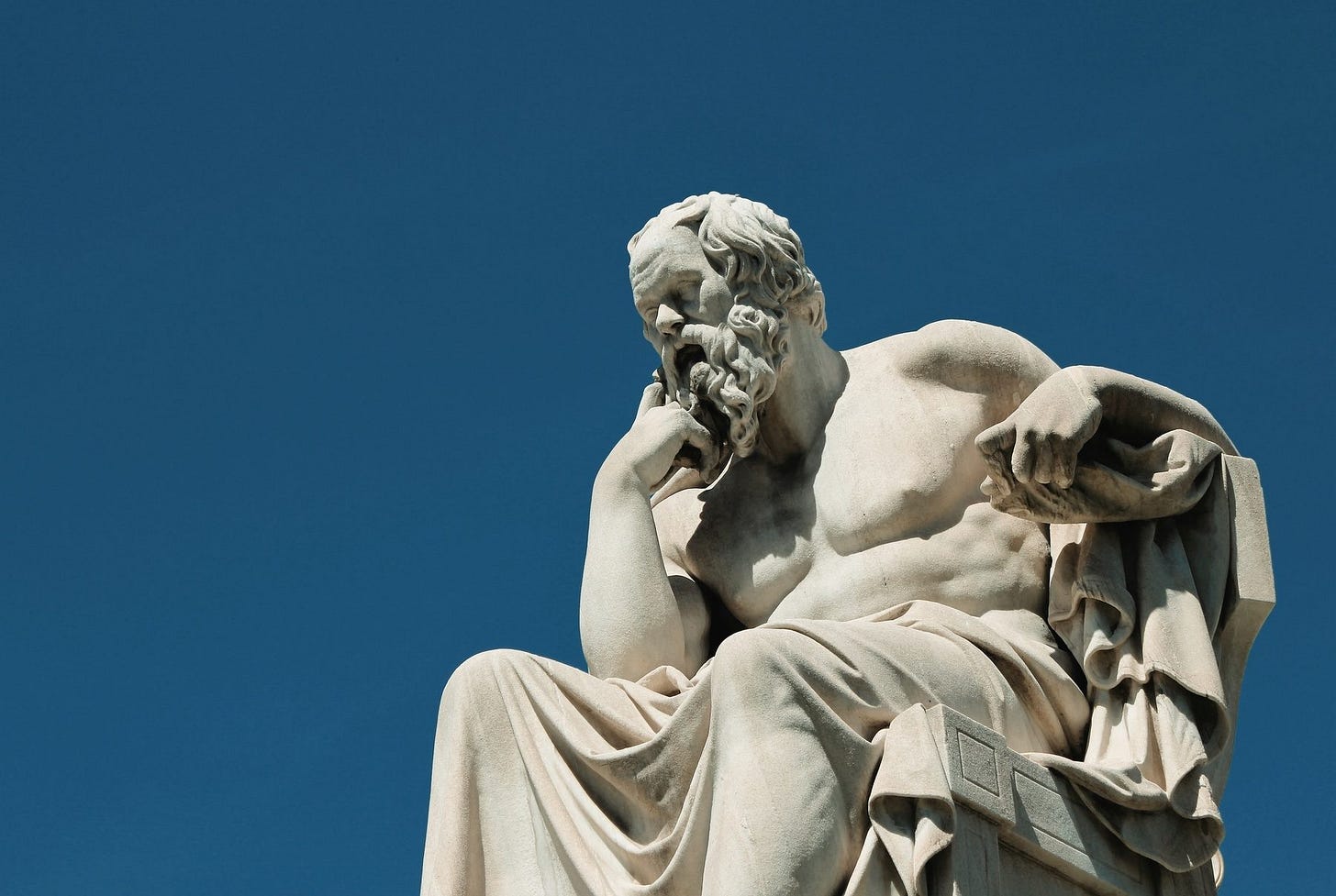
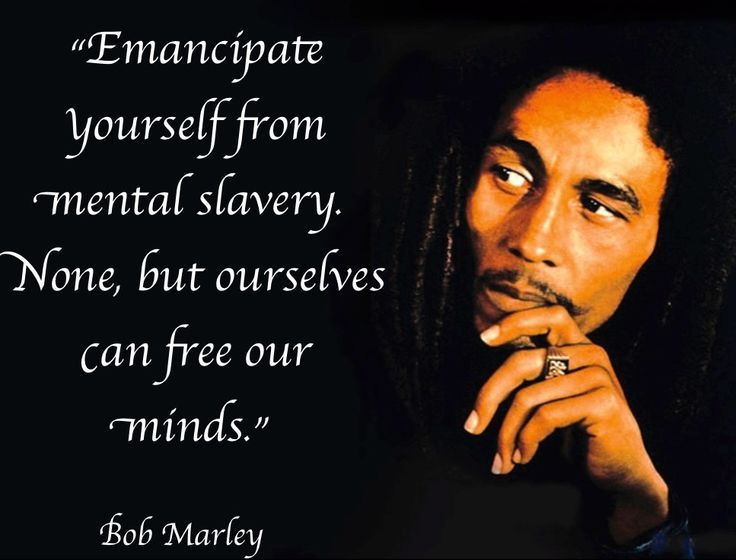
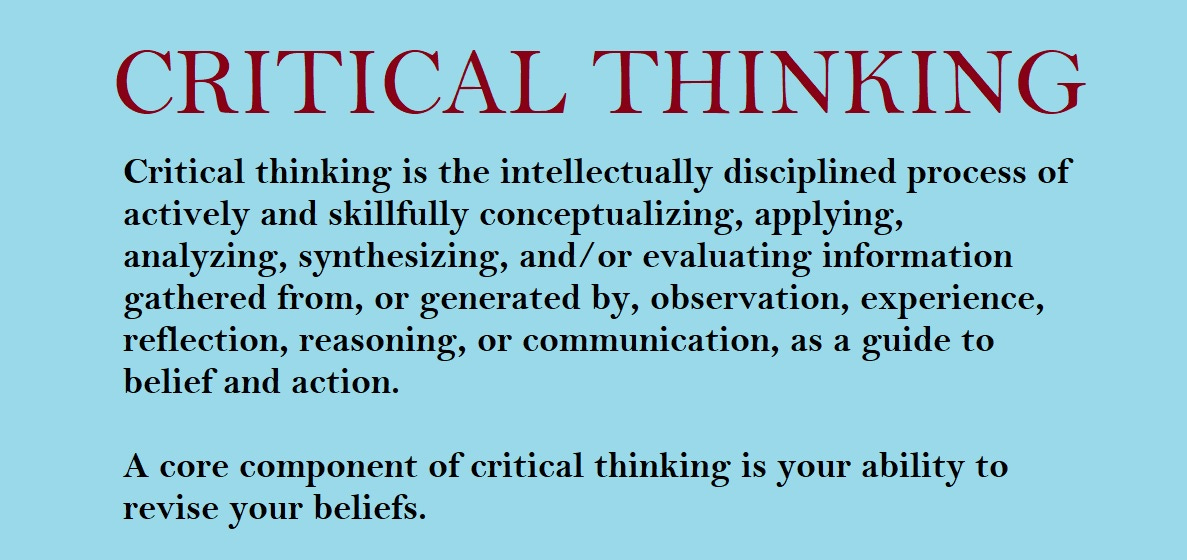
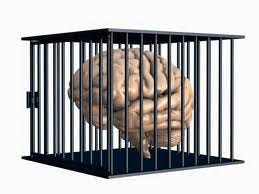
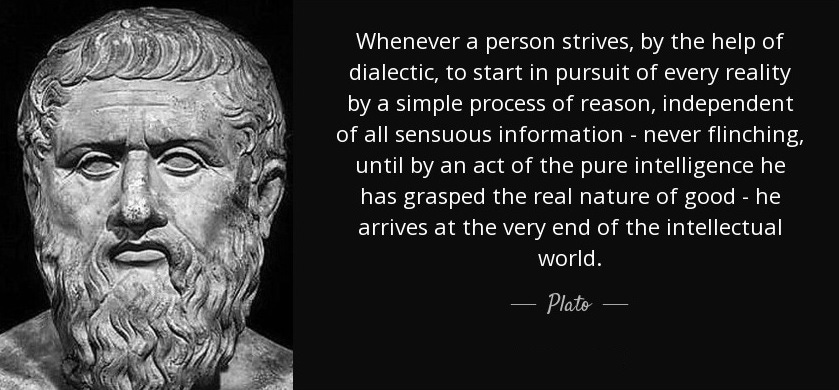


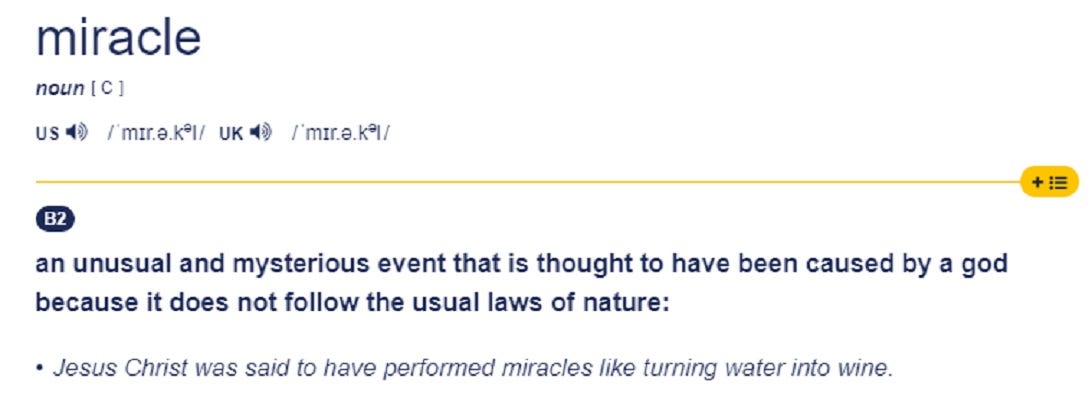



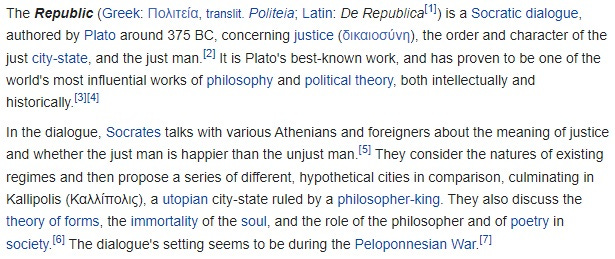

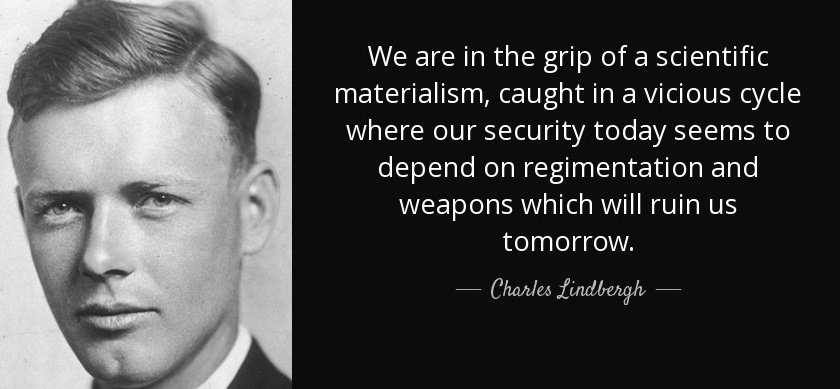

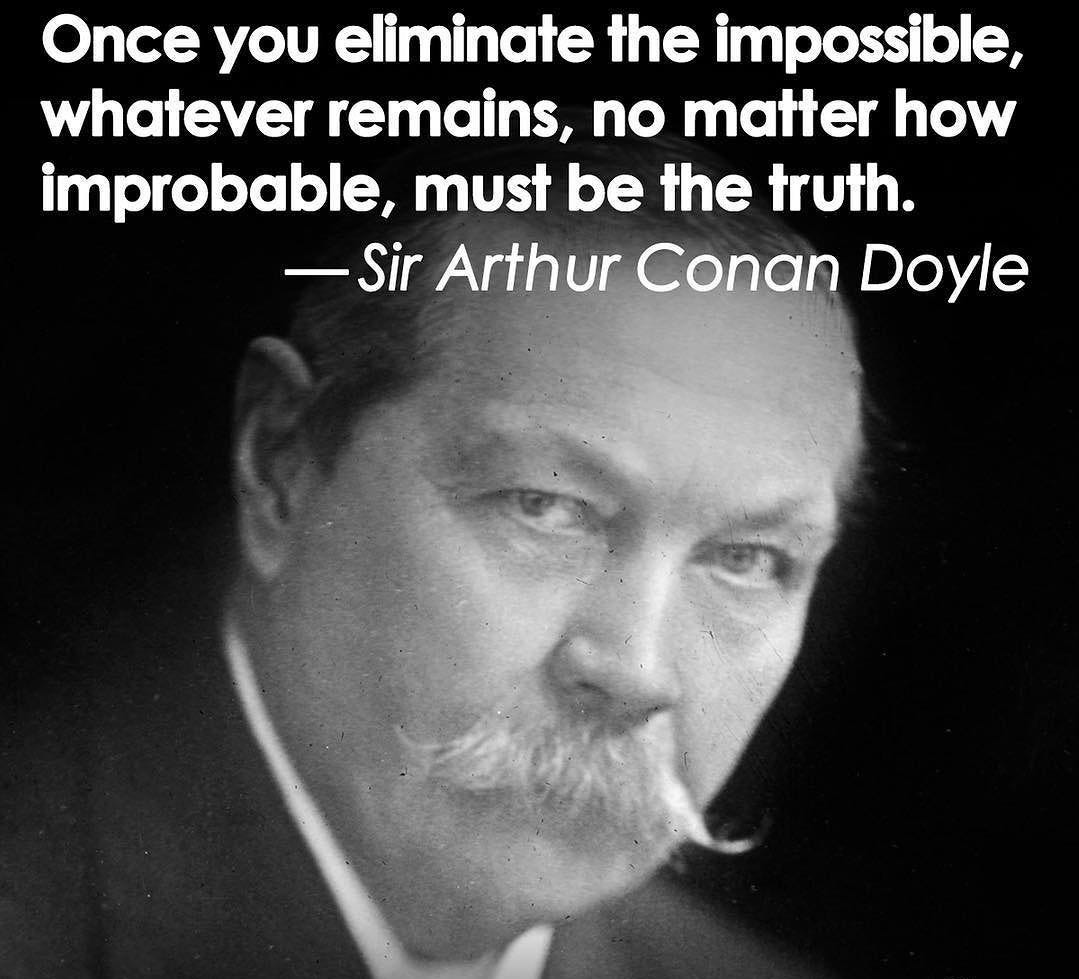
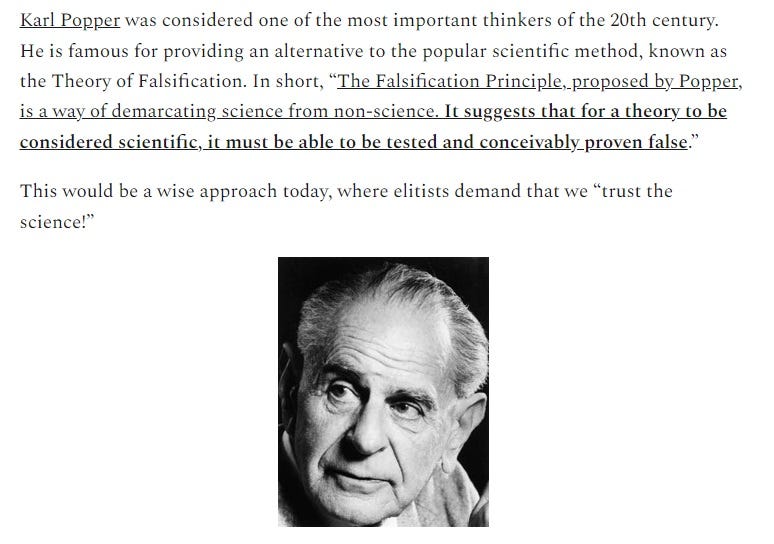
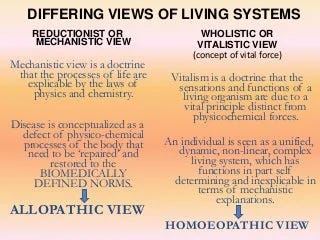
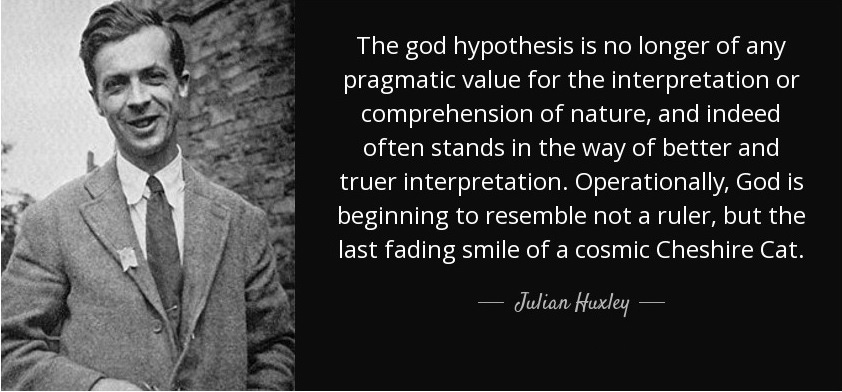
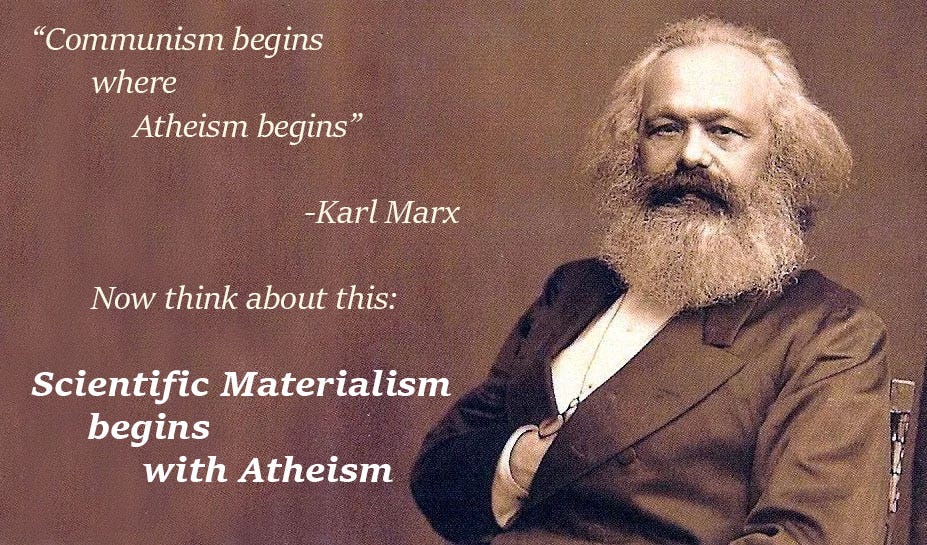
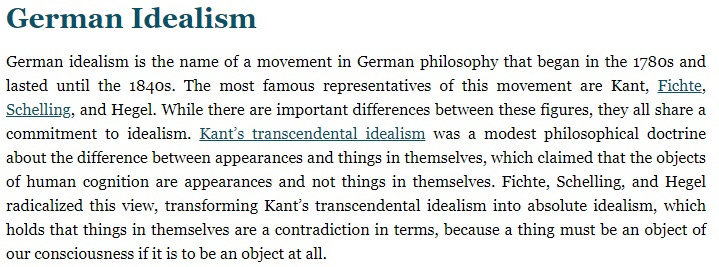
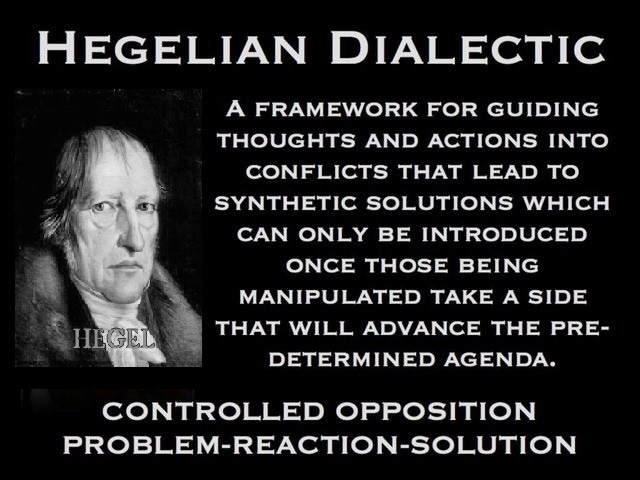
Am currently reading https://www.goodreads.com/book/show/125377476-introduction-to-the-reading-of-hegel?from_search=true&from_srp=true&qid=7rwor9Ns8H&rank=5 after trying to read Phenomenology of Spirit in German and got bored to death due to not understanding anything. But Popper said that a lot of Hegel's stuff is plainly just gibberish.
I have read "Open Society and it's enemies" by Popper as well as "The Beginning Of Infinity" by David Deutsch. I strongly recommend "The Beginning Of Infinity" to you (a big part is about Popper), you would surely enjoy it